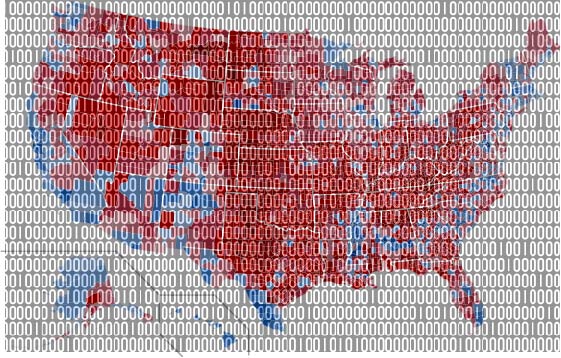Ever since the results of the U.S. presidential election came in last November, media pundits and casual observers alike have contemplated the power of media to sway voters. Attention has fallen squarely upon the specter of “fake news” — deliberate misinformation that has been put forth for a specific political aim. (Also known as “propaganda.”) It was the topic of a debate cosponsored by the NYC Media Lab, which we covered back in February.
Recently, Justin Hendrix, the NYC Media Lab’s executive director, took up a related topic: the ability for social networks such as Facebook to be gamed in order to spread such misinformation to subvert democratic processes. In a post on Mediun, Hendrix and coauthor David Carroll, an associate professor of media design at Parsons (and a participant in the aforementioned debate), wrote about the links between Big Data and two big political moments of 2016: the U.K. vote to Brexit and the U.S. election of Donald Trump as president.
Ample media coverage has linked those two votes, and several journalists have covered the role of Big Data firm Cambridge Analytica in both the Brexit and Trump campaigns. Though the firm’s ultimate influence upon the U.S. election has been hotly debated, several reports have turned up connections between the firm and political figures such as Steve Bannon, President Trump’s controversial senior adviser and former Breitbart News executive, who previously sat on the company’s board. Most recently, the Guardian published a story investigating links between several tech firms and those political movements. (Hendrix tweeted a link to it.)
https://twitter.com/justinhendrix/status/861171662947004416
Hendrix and Carroll propose three actions that they suggest may stem the tide of undue political influence through tech:
- Hold companies accountable: “Citizens need to put pressure on Google, Facebook and other technology platforms to behave in the interests of the democracies that enabled their unrivaled success.”
- Seek legislation that protects voters: “Every voter should have the right to request personal voter data dossiers and learn how politicians might be using predictive ideological models to manage campaigns in their district.”
- And a heady one: abolish the Electoral College: “Because a tiny fraction of votes count more than the vast majority, and because we may have proven that voter data is being processed internationally, we must take drastic actions to equalize the value of one vote.”
The post is, to say the least, a thought-provoking read.
Join the conversation!
Find news, events, jobs and people who share your interests on Technical.ly's open community Slack
